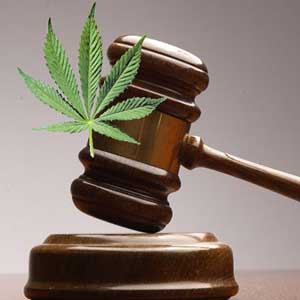 Law blocking cities from banning medical marijuana is appealed to State Supreme Court; legality of state law to be examined
Law blocking cities from banning medical marijuana is appealed to State Supreme Court; legality of state law to be examined
The July 2012 Court of Appeals decision in the case of John Ter Beek v City of Wyoming (Michigan) was a groundbreaking victory for medical marijuana advocates statewide. The Supreme Court has agreed to hear arguments in the case- and stated they’ll look at the legality of the state medical marijuana law itself in the process.
The order signifying the Court’s decision was handed down Wednesday. It did not include a timetable for consideration. The Court of Appeals ruled that the state Medical Marihuana Act superceded Wyoming’s local ordinance which cited federal law in banning all marijuana use and cultivation, including patients registered with the state. The Supreme Court has agreed to take up two issues- if the state law overrides the local ordinance, and if federal law overrides state law.
The stakes could not be higher: if state law strikes down local ordinances and federal law strikes down state law, where does that leave the 160,000 participants in the MMA? 130,000 sick and injured persons are in danger of losing their protections if the MMA, enacted by a 63% vote of the people, is overturned. 30,000 caregivers will lose the legality of their growing operation.
The Supreme Court has already wreaked havoc on safe access for Michigan’s patients with their decision in People v McQueen in February 2013. Their narrow interpretation of the MMA was widely unexpected and has lead to the closure of more than half of the medical marijuana safe access centers that existed in Michigan prior to the ruling.
Coincidentally, the Michigan Attorney General filed a brief with a federal court asking for dismissal of the lawsuit threatening to overturn the state’s Right to Work law by claiming it is preempted by federal law. In defending the state law against a federal override, the A.G. says the lawsuit’s supporters “ignore state laws in place today” in 23 other states with similar laws, laws which have withstood court challenges.
The A.G.’s Brief includes, “These statutes have retained their viability and have not been held to be preempted by federal law… Michigan’s law is neither unique nor novel. Michigan joins the multitude of States that use the same or similar language in their laws.” Similarly, medical marijuana is law in 18 states and has withstood court challenges in many of them; the MMA was created using the same or similar language from the laws of other states.
Michigan has seen an increase in anti-marijuana propaganda recently. Cannabis foe Kevin Sabet has delivered talks in Macomb County and elsewhere, while University of Michigan’s substance Abuse Research Center will host a speech on Thursday April 4 by National Institute on Drug Abuse representative Dr. Marilyn Huestis on the subject of ‘Daily Cannabis Smoking: Effects on Brain, Behavior and Body’. A local activist group has pinned responsibility for increased teen marijuana use on permissive state laws and groups like NORML.
Many prosecutors across the state have used the McQueen ruling to shutter distribution centers by threatening to or actually issuing cease and desist letters. In Jackson a crowd of 200 protested the prosecutor’s decision by picketing his office. Council meetings in affected areas have been filled with the sick, angrily protesting to their elected officials the closure of their safe access center. A bad ruling by the Supreme Court could take four years of registered patient protections for a proven treatment method and destroy it all.
Source: The Compassion Chronicles







